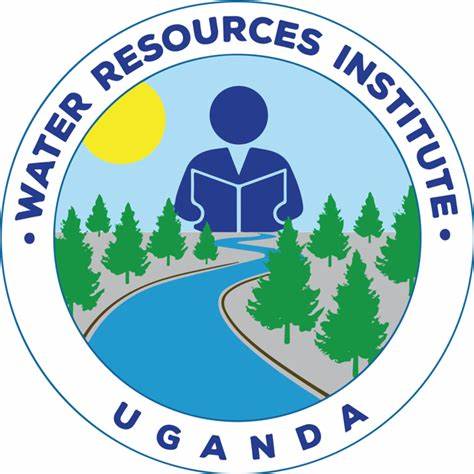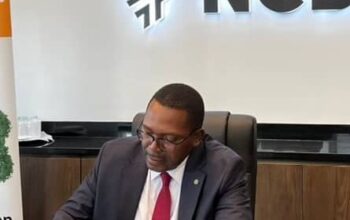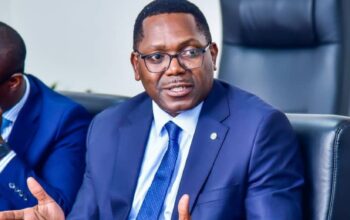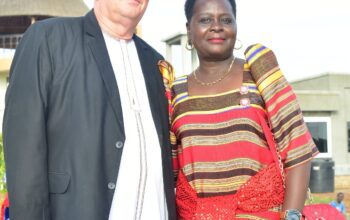The Water Resources Institute of the Ministry of Water and Environment held its 4th Steering Committee meeting on Friday 23rd May 2025.
The Steering Committee is the overall governing body of WRI in the short to medium term and provides strategic leadership and governance oversight; it is also accountable to the Environment, Natural Resources and Water Management Program Working Group.
The steering committee has representatives from the various Directorates of the Ministry of Water and Environment, Sector Agencies, Donors, Academia, Private Sector, and Civil Society Organizations (CSOs).

The SC further;
a) gives strategic direction, oversees the general management, financial health and performance of the WRI
b) Provides cross-functional leadership and direction that reviews the progress of the strategy and manage the project team
c) Provide and approve required resources for implementation of budgets against timelines and ensuring quality of outcomes within scope
d) Approves the business case and take lead on resource mobilization, stakeholder engagement and change management to make operational key initiatives of the WRI; e) Evaluate and monitor operational policies/manuals and programs, annual work plans and progress reports; f) Balance conflicting priorities, risks and resources against the milestones set and outcomes by resolving implementation bottlenecks and providing positive impetus to facilitate achievement of the WRI strategic goals, results and outcomes
g) Foster positive communication outside of the committee regarding the WRI’s progress and outcomes
while providing advice about changes, project approach, WRI standards, values, and ensure compliance
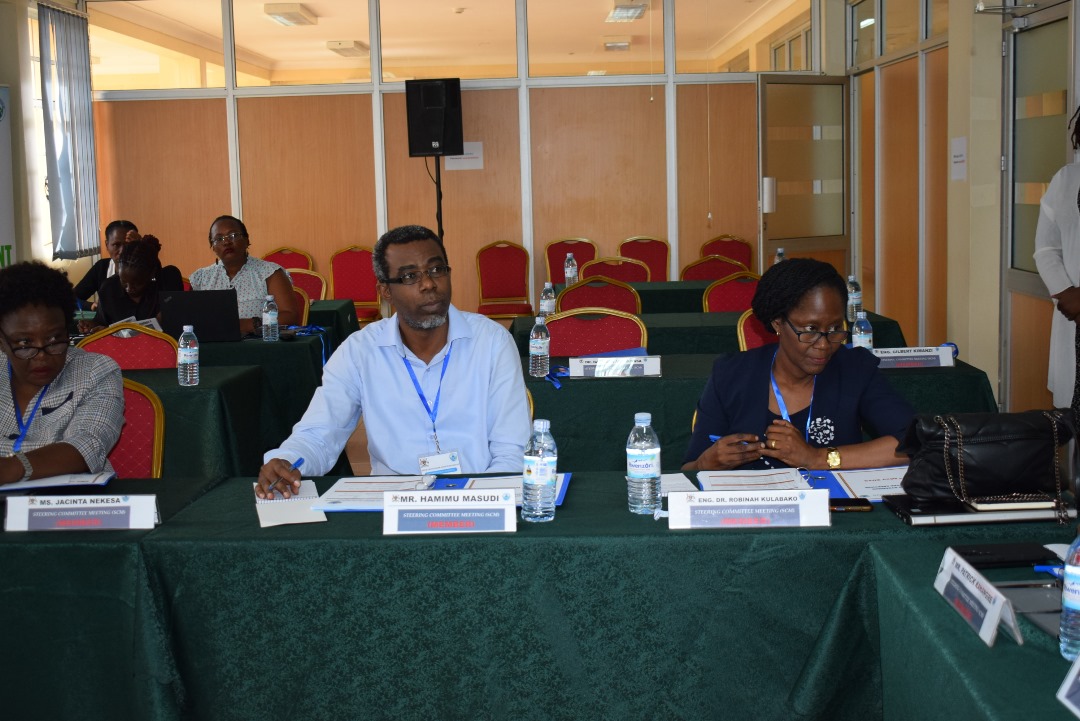
The 4th SC meeting was chaired by the Director Water Resources Management Dr. Callist Tindimugaya
on behalf of Permanent Secretary Ministry of Water and Environment Dr. Alfred Okot Okidi. Dr. Callist
updated the committee on several key developments, including the successful Uganda Water and
Environment Week 2025 held from 17th March to 21st March 2025, which has gained international stature; the Water Resources Institute mentorship program that has reached nearly 200 participants; the Water and Environment Research Agenda that was launched during the 8th Uganda Water and Environment Week 2025 as a tool to operationalize the thematic focus area of applied research for WRI, he also updated the committee on the establishment of the Water and Environment Museum in Entebbe.

Update on how Water Resources Institute was fully integrated into the draft National Water Policy, which was presented to the Cabinet and received presidential interest. He also discussed the utilization of retired professionals, noting that while some have been engaged in various capacities, there is potential for wider use across the sector.
He appealed to all the Steering Committee members to ensure utilization of the retired
professionals and to fully participate in all WRI programs especially the annual Uganda Water and
Environment Week.
The Water Resources Institute’s steering committee meeting covered a range of topics including program updates, financial reports, and future planning with submissions from the Coordinator Ms. Gwendolyn Kyoburuingi Zaake and the Deputy Coordinator Mr. Kizito Francis Xavier.

Discussions focused on the success of various initiatives such as the Uganda Water and Environment Week, mentorship programs, internship and placement program, applied research, retired professionals and training activities, as well as challenges in funding and resource allocation.
The committee approved progress reports and work plans, emphasizing the need for improved documentation, increased visibility, and exploration of alternative funding sources to support the Institute and ongoing efforts in water resource management and environmental conservation.
The meeting discussed the mentorship program, focusing on its impact and future directions.
The Coordinator explained the program’s initial focus on women to address gender equality, noting that while women have shown increased confidence, men have been included in recent cohorts.
One of the SC members highlighted the program’s success and suggested extending it beyond the Ministry to other sectors.

The Committee agreed on the importance of including both men and women in the mentorship
program, with Dr. Robin Kulabako from Makerere University supporting integrated cohorts for better
peer learning. Ms. Harriet Nattabi, a Water Resources specialist from the World Bank emphasized the
value of mentorship for women in a male-dominated sector.
The discussion ended with plans to recruit for the next mentorship cohort in July and to involve guest speakers from various sectors to share their experiences.
The meeting discussed the need for accreditation of the Institute’s training and mentorship programs, with a focus on packaging and submitting the mentorship program for accreditation due to its substantial development over the years.
The Water Resources Institute through the Coordinator Ms. Gwendolyn Kyoburuingi Zaake presented
their progress report on financial and technical achievements, highlighting budget allocations and
expenditures across various objectives.
The report showed that while some objectives met or exceeded their financial targets, others, particularly those related to information dissemination and research, received significantly less funding than planned.
The steering committee expressed appreciation for the Institute and work, particularly the Uganda Water and Environment Week, but raised concerns about the low percentage of funding received from government compared to partners.
The committee suggested exploring reasons for the funding gaps and considering alternative approaches to increase support, including holding the event in different regions to reach more people.
The Water Resources Institute discussed their participation in environmental events and their resource
mobilization strategy.
They noted a 54% budget cut due to general budget reductions, but expected improvements as they finalize approval stages with the Minister of Finance.

The Institute annd impact within the sector is appreciated, and leadership is giving it attention. They also discussed the possibility of moving the Uganda Water and Environment Week to a regional level, but decided to reflect on this further.
The team emphasized the importance of marketing the Institute and engaging with other partners
to promote its work.
They suggested utilizing media opportunities, presenting at various events, and taking advantage of existing platforms to increase visibility and credibility.
